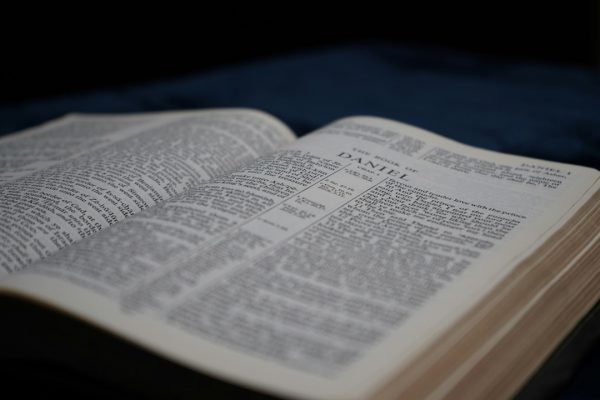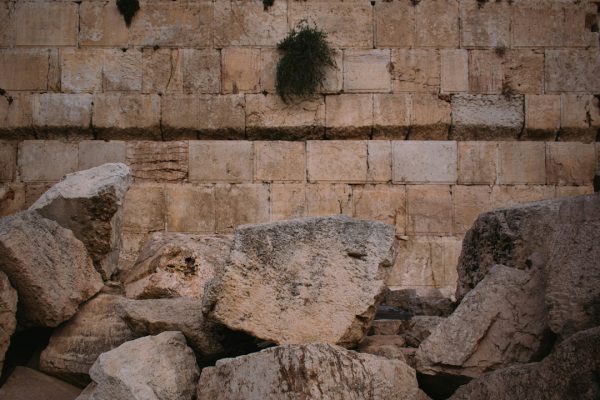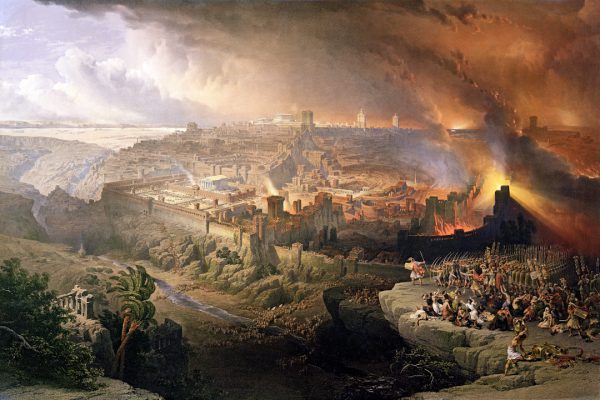In Psalm 8, David ponders God’s wisdom as he stares up into the vast night sky. In Psalm 19, he reflects on God’s truth as he feels the warmth of the shining sun. But in Psalm 29, David rejoices in God’s power as he beholds the fury of a raging storm that sweeps in from the sea and over the land.
There’s something awesome about thunderstorms, isn’t there? From the thick, dark clouds to the flashes of lightning and the rumbling of thunder, storms are terrifying yet wonderful. This is the imagery that David employs in Psalm 29. It is a song of praise to the Lord for his sovereign majesty and powerful rule. The late Alec Motyer was right when he said: “It is best simply to let the wonder and awesomeness of this psalm sweep and swirl around us until we are so possessed in spirit by the majesty of the Lord that we too cry Glory (9).”[1]
But the glory of this psalm is not just its imagery, but the grace and truth it reveals—both to the world and to the church.
The Glory of the Lord (vv. 1-2)
The psalm begins in heaven with a call to praise the Lord, the God of Israel. All heavenly beings are to “ascribe to the Lord the glory due his name”—a name repeated eighteen times in this short song! All creatures, even the mighty angels, are to give Yahweh the honor he alone deserves for who he is and what he has done. He is the King of the universe, the Maker of heaven and earth. He alone is “majestic in holiness, awesome in glorious deeds, doing wonders” (Ex. 15:11). And here, we see that true adoration—the worship that the Lord Yahweh deserves and that his glory demands—involve both head and heart. It is both acknowledging his worthiness (“give to the Lord”) and submitting to him in humility and reverence (“bow down before the Lord”).[2]
Friends, this is why we were created. This is the most basic, most fundamental, and most important task of all creation: to glorify the Creator, to bless the Lord, the one true God. With this call to give glory to the Lord, the scene now shifts from heaven to earth . . .
The Voice of the Lord (vv. 3-9)
In vv. 3-9, David describes the Lord making his power and glory known in creation as his voice thunders from on high. The imagery is thick! Look at v.3: it is the God of glory who thunders. Of course, thunder is not literally the voice of God (any more than it is the sound of angels bowling!). But thunder is also not just an event that occurs in nature; it serves to point us to the reality of the omnipotent Lord who reveals himself in his creation, who’s voice is powerful. Remember, it was by the word of the Lord that the heavens were made. God’s voice is so powerful that it works; it can create and destroy. When the King of glory speaks, creation hears.
Now, the picture here is that of a mighty thunderstorm that moves in from the Mediterranean Sea and rages across all the land of Israel, from north to south. I want us to think about this imagery:
First, the voice of the Lord thunders over many waters. Raging seas are often a picture of all the raging nations, of chaos and the destructive forces of evil. But while the floods may lift up their roaring voices, the Lord on high is mightier than all the waves of the sea (Ps. 93:3-4).
Second, the voice of the Lord breaks the cedars of Lebanon as lightning strikes the trees. This is a common metaphor in Hebrew poetry and prophecy for God humbling the proud, cutting them down in judgment. The Lord is enthroned over all who exalt themselves (Isa. 2:12-13).
Third, the voice of the Lord makes the mountains in the north to skip (v.6) and the wilderness in the south to shake (v.8). This reveals that his power and glory are inescapable. Whether high or low, north or south, near or far, none can hide from the Judge of all the earth. All hear his voice.
So, in these verses, the thunderstorm illustrates God’s power over his creation, his sovereign rule over his proud enemies. He is the Lord and there is no other. He is the God of the storm—not Baal, not the deities who were thought to dwell on the mountains. Yahweh’s voice makes them tremble!
The Salvation of the Lord (vv. 10-11)
Yet notice how this psalm ends in vv.10-11. With all in his temple crying “Glory!” as a result of the storm (v. 9), we end like we began: with the truth that the Lord is enthroned as King of the universe. But did you notice where David also says that the Lord sits enthroned? “Over the flood.” This Hebrew word is only used 13 times in the Old Testament. The other 12 uses of it are only found in Genesis referring to the Flood—when God destroyed the world and rebellious humanity.
This is crucial to see. When we consider the glory of the Lord in vv. 1-2, and the voice of the Lord in vv. 3-9, we see why he is king over the flood. Just as he reigns in heaven in the splendor of holiness, so he reigns on earth in the judgment of holiness.[3] Only he will be exalted! But in v. 11 we find something even more profound: This Lord, enthroned as king over the flood, gives strength to his people and blesses his people with peace! How can this holy King have a people? It’s because the good news is that the Lord not only reigns in judgment but in grace. Though the world was destroyed with a flood, God still preserved a people for himself. All who trusted in his promise of salvation and entered the ark were rescued from his righteous wrath.
Today, though the voice of the Lord still thunders in judgment against our unrighteous world, a world full of idolatry and pride, the voice of the Lord has also spoken to us in grace and truth. God has ultimately made his glory known to us not in the storm but in his Son, Jesus Christ.[4]
John 1:14: “And the Word became flesh and dwelt among us, and we have seen his glory, glory as of the only Son from the Father, full of grace and truth.”
God so loved the world that he sent his Son to save us from the wrath we deserved for our sin. Now all who trust in Christ can be rescued from the raging storm and experience the peace and security of belonging to the King of glory. In Christ, the Lord Yahweh is our Heavenly Father. This is the salvation of the Lord that our world needs to hear. They must hear this gospel of God—the good news of the King who gave his only Son to redeem us, that we might bless his holy name.
Conclusion
And so, this Psalm begins in heaven with the praise of angels and ends with the blessing of peace on earth bestowed upon all those belong to the Lord by his grace. Did you notice the movement?
Glory in the highest; peace on earth. It has often been pointed out that this Psalm finds its true fulfillment in the coming of Jesus into the world. When he was born, the angels sang: “Glory to God in the highest, and on earth peace among those with whom he is pleased!” (Luke 2:14).[5]
So, brothers and sisters, I pray you find encouragement from Psalm 29. In times like these, it is all too easy for the storms of this life and the flood of voices out there to drown out the one Voice which we need to hear most: the voice of the Lord that alone “is over the waters” (Ps. 29:3).
Yet as we center our lives on the voice of the Lord as he speaks to us in his Word, he will give us strength to endure whatever crisis we face. As we listen to the voice of our Savior-Shepherd, the risen Lord Jesus, he will indeed bless all who call upon his name with grace and peace.
Endnotes
- J. A. Motyer, “The Psalms,” in New Bible Commentary: 21st Century Edition, ed. D. A. Carson et al., 4th ed. (Leicester, England; Downers Grove, IL: Inter-Varsity Press, 1994), 503.
- Derek Kidner, Psalms 1–72: An Introduction and Commentary, vol. 15, Tyndale Old Testament Commentaries (Downers Grove, IL: InterVarsity Press, 1973), 142.
- Motyer, “The Psalms,” 504.
- Mark D. Futato, “The Book of Psalms,” in Cornerstone Biblical Commentary, Vol 7: The Book of Psalms, The Book of Proverbs (Carol Stream, IL: Tyndale House Publishers, 2009), 121.
- F. Delitzsch in Michael Wilcock, The Message of Psalms: Songs for the People of God, ed. J. A. Motyer, vol. 1, The Bible Speaks Today (Nottingham, England: Inter-Varsity Press, 2001), 101.




